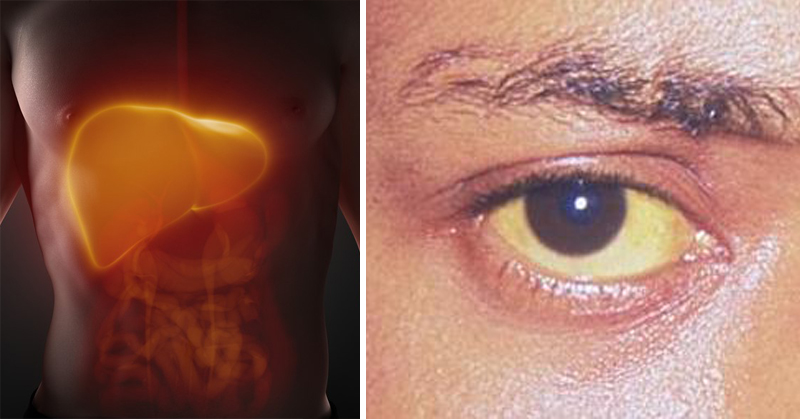Liver disease may not strike fear in people like heart disease or kidney disease. But disease of the liver has great consequences for your health.
Symptoms of liver disease vary and include, for example, jaundice, dark urine, and a susceptibility to bruising. At this time, there are over 100 different types of liver disease that affect millions of people in the United States each year. Disease of the liver is caused by a wide range of factors, including following a poor diet, drinking excess alcohol, and being obese. Liver disease symptoms may also include swelling in the legs and ankles. Natural treatment methods, however, can help patients better manage their symptoms and heal the liver. (1, 2)
We’ll discuss the various types of treatment methods you can try, but first, let’s look at the different types of liver disease. Then we’ll look at some of the common symptoms of liver disease, as well as causes and risk factors.
Nonalcoholic Liver Disease Types
- Nonalcoholic fatty liver: This type of liver disease occurs when fat builds up in the liver, but there aren’t necessarily any complications. One study found that nonalcoholic fatty liver disease is present in 17-33% of Americans. (3)
- Nonalcoholic steatohepatitis: This type of liver disease occurs in a small number of people with fatty liver. The fat leads to inflammation in the liver, which impairs the liver’s ability to function. This type can lead to cirrhosis. (4)
- Nonalcoholic fatty liver disease-associated cirrhosis: This type of liver disease occurs when liver inflammation causes the liver tissue to scar, which makes the liver heavier than any other solid organ in the body. The scarring can become so severe that it leads to liver failure. (5)

Liver Disease Symptoms
- Fatigue
- Jaundice
- Weight loss
- Loss of appetite
- Weakness
- Nausea
- Vomiting
- Confusion
- Trouble concentrating
- Enlarged liver
- Bloating and gas
- Dark urine
- Bruising easily
- Excessive sweating
- Constipation
- Pale or dark-colored stool
- Dry and dark patches on neck and under arms
- Swelling the legs and ankles
Liver Disease Causes and Risk Factors
- Medications
- Viral hepatitis
- Autoimmune or inherited liver disease
- Fast weight loss
- Malnutrition
- Obesity (6)
- Gastric bypass surgery
- High cholesterol
- High levels of triglycerides in the blood
- Type 2 diabetes
- Metabolic syndrome
- Sleep apnea
- Polycystic ovary syndrome
- Underactive thyroid
- Underactive pituitary gland
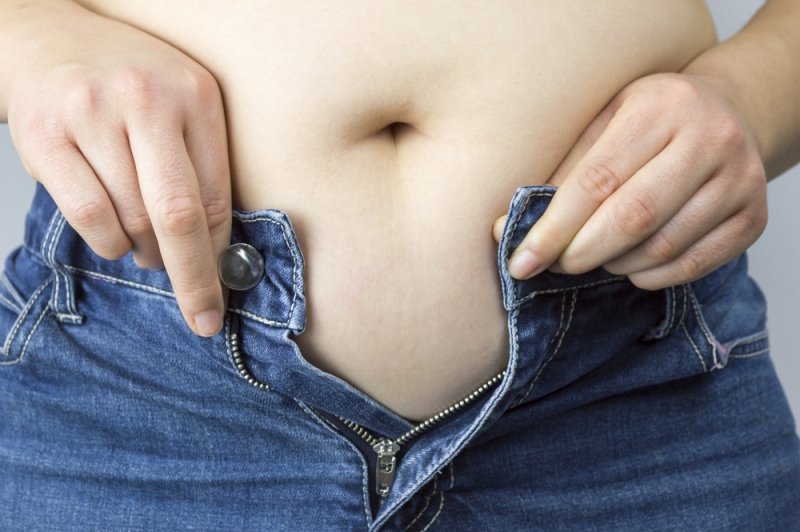
Liver Disease Treatment
1. Liver Disease Diet
Despite the strong connotation, alcohol isn’t the only food or drink that can lead to liver disease. Liver disease can, in fact, be caused by anything that cannot be broken down and used for immediate energy, which ends up in the liver for detoxification. For example, overindulging in problem foods can put a strain on your liver and lead to dangerous buildup.
Foods that can harm the liver include:
- Alcohol (7)
- High-carbohydrate foods
- Sugary drinks
- Processed foods
To help prevent liver disease symptoms and heal an overworked liver, fill your diet with liver-friendly food. This includes nutrient-dense foods that do not contain toxins, processed sugars or dangerous ingredients. High-quality organic fruits and vegetables can help reduce the strain on your liver and support the detox process. (8) Yes, your liver is built to detox on its own. However, just take a look at all the foods we, as a society, tend to consume on a day-to-day basis. We’re poisoning our bodies! No wonder our livers need help! You can help your liver do its job properly by eating foods that promote the detoxification process. There are so many delicious foods you can incorporate into your diet that will help cleanse your liver!
Generally speaking, foods that are high in fiber can help support a healthy liver. Read the list below for foods that are known to help improve fatty liver disease.
Foods that improve fatty liver disease include:
- Beets (try them with apple cider vinegar, or in a berry smoothie! Yum!)
- Cauliflower
- Broccoli
- Leafy greens
- Brussels sprouts or cabbage
- Celery
- Asparagus
- Carrots
- Cucumbers
- Sweet potatoes
- Bananas
- Herbs such as parsley, mint, cilantro and basil (these are fantastic ways to spruce up your salads and pasta dishes!)
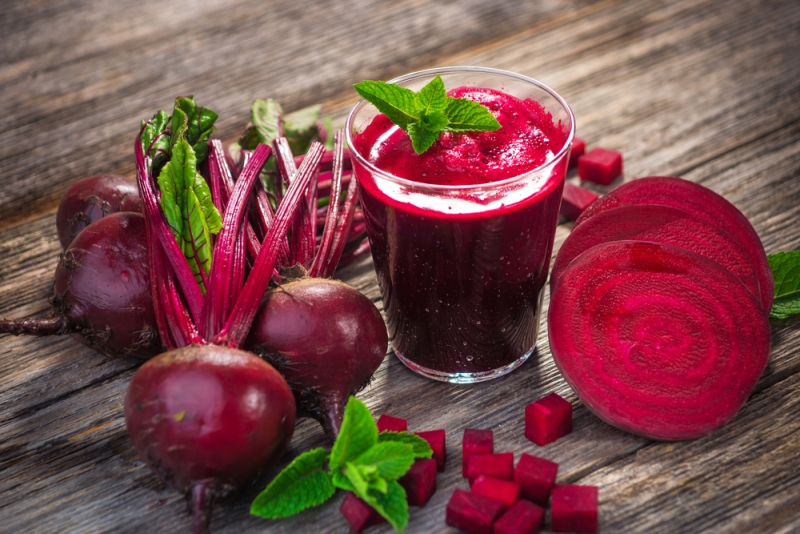
2. Ginger Root
As mentioned above, foods that are high in fiber are helpful in liver disease treatment. They support a healthy digestive tract by eliminating toxins from the body. Ginger root also benefits the digestive system. Boil ginger slices in green tea or water, or add ginger to your stir fry, salad or smoothie. Alternatively, you can also try using it in a homemade pasta sauce. It’s a great way to add a delicious zing to your ordinary sauces!
3. Dandelion Root
Dandelion root contains vitamins and nutrients that help cleanse the liver. Dandelions are also natural diuretics that work to support the detox process, which is paramount in liver health. Drink dandelion tea to help reduce inflammation and support liver health. You can find dandelion tea at many health food markets or in grocery stores. However, as with most food and supplement products, it’s best if you make it yourself at home. This way you can ensure you’re getting the most nutrients the root can offer, and that it’s minimally-processed.
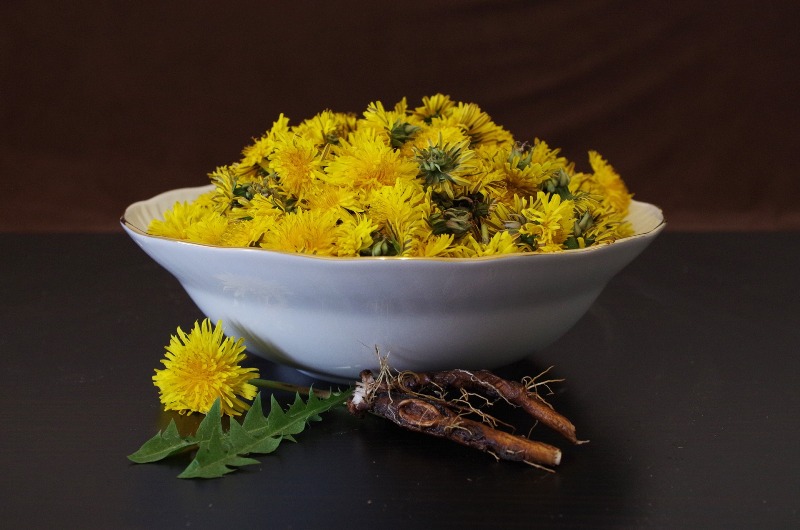
4. Milk Thistle
Milk thistle has powerful detoxifying properties that help rebuild liver cells and remove toxins from the body. A 2010 study found that milk thistle can help treat alcoholic liver disease. Furthermore, this study found that milk thistle can treat acute and chronic viral hepatitis as well as toxin-induced liver disease. (7) You can take milk thistle as a supplement in capsule form, or, alternatively, you can drink it as a tea.
5. Vitamin E
Vitamin E provides antioxidant properties and reduces inflammation in the body. Research has shown that taking Vitamin E supplements while implementing other lifestyle changes can help heal liver damage caused by nonalcoholic fatty liver disease. (9) Furthermore, it can also improve hepatic fibrosis, ballooning and inflammation.
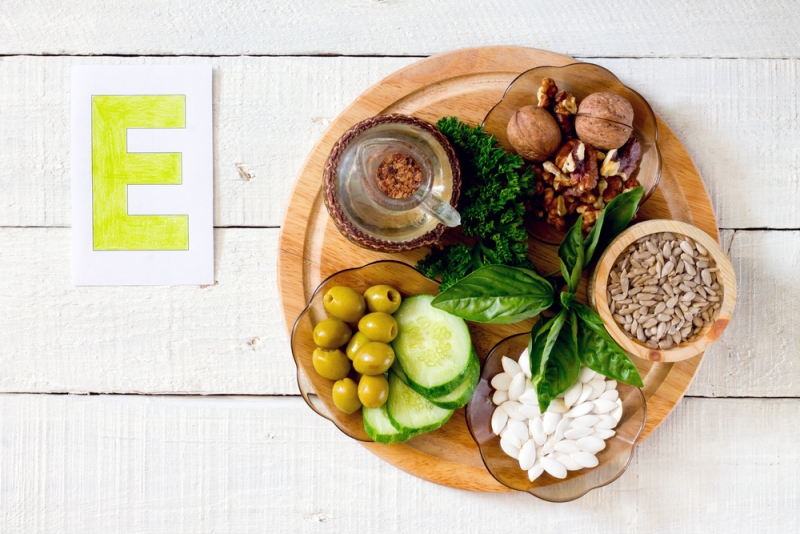
6. Turmeric
Turmeric has powerful anti-inflammatory properties that can help treat digestive conditions. As a supplement, take 450 milligrams of curcumin capsules each day to reduce inflammation. Additionally, you can also (and should!) incorporate turmeric into your cooking to help keep your liver in good-working order. Turmeric is great in several dishes. For example, it’s a good spice to add to rice, pasta, soups and stews.
7. Black Seed Oil
Black seed oil has been shown to speed the healing process of fatty liver disease. For example, a study published in the European Review for Medication and Pharmaceutical Sciences found that black seed oil has the ability to inhibit oxidative stress markers and slow the progression of the disease. (10)


